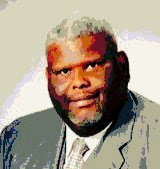Bahamas 'Ass Backwards' Over Oil Negotiations
By NEIL HARTNELL
Tribune Business Editor
Nassau, The Bahamas
A well-known attorney yesterday said the Bahamas had done an “ass backwards” job in negotiations with the Bahamas Petroleum Company (BPC), arguing that the country should receive “no less than 60 per cent” of the proceeds if commercial quantities of oil were discovered.
Craig Butler, head of the C. F. Butler & Associates law firm, told Tribune Business that the 12.5-25 per cent ‘sliding scale’ royalties agreement negotiated with BPC was similar to arrangements “Third World” states had reached with oil explorers.
Recalling the research he conducted on the matter in the run-up to the May 2012 general election, Mr Butler said most countries had negotiated terms where they received between 25 per cent to 90 per cent of the proceeds from any oil exploration/production.
He added that BPC was being “disingenuous” and seeking to recover all its development and exploration costs upfront, the moment commercial oil quantities were found, whereas most such deals allowed exploration firms to recover such costs over the lifetime of their leases.
And Mr Butler called for the Bahamas to create a non-political National Commission to re-negotiate the deal with BPC, and introduce more “transparency” into the process.
“All the countries that aren’t good at negotiating deals got the thin end of the stick,” Mr Butler said of the findings produced by his research. “The more developed countries tend to take a larger part of the pie in terms of the profits.”
Simon Potter, BPC’s chief executive, told Tribune Business yesterday that the financial agreement was effectively a 50/50 split between the company and the Government.
Based on oil selling at $80 per barrel, BPC presentations have shown that while half that revenue sum - $40 - would cover costs, with the remaining 50 per cent or $20 each going to the company and the Government respectively.
Yet Mr Butler argued: “BPC is being disingenuous, making it seem as if they are taking an amazing risk. They are, but that is what business is all about. They’re looking to recoup their costs right away.”
He suggested that typical oil exploration deals allowed companies to indeed recover their costs, but over the lifetime of their lease agreements.
Mr Butler said that if BPC’s development costs worked out to be $20 billion, it seemed to want to recover that “off the bat” if commercial oil quantities were found, based on its agreement with the Government.
As a result, the Bahamas would not see any benefits for three-four years.
“With the greatest respect to these negotiators, we are still enamoured that we possibly have oil, natural gas, and this money is coming in,” Mr Butler said.
“We’re looking at it as if the country is benefiting by $10 billion, $20 billion, and we’re salivating. We’re not thinking long-term, thinking this is the Bahamas’ last opportunity to become the first world country it wants to be.”
He added that Trinidad & Tobago had also squandered its oil and natural gas inheritance, with the financial terms benefiting the explorers, and proceeds concentrated in the hands of a few.
“If this is a national resource, if we are putting our tourism industry at risk, the Bahamas as a whole needs to benefit from this,” Mr Butler told Tribune Business.
“My research has shown that generally, the initial financing is paid back over a period of time, 10-20 years at a reasonable interest rate. Profits are then split. Going rates are anywhere from 25 to 90 per cent. Clearly, the better your negotiating team, the better the country’s deal.
“In other places, companies pay a large fee to come in and prospect. All the burden is theirs. And their licenses have determinable periods,” he added.
“It appears as though in the Bahamas we’re always ass backwards. We should be receiving no less than 60 per cent, and all infrastructural and economic costs should be paid back over 20 years at 3 per cent. Take it or leave it. If it were put that way, they’d [BPC] jump to take it.”
Describing 25 per cent and 90 per cent as the respective low and high ‘ends of the scale’ in terms of what sovereign countries received, Mr Butler said the Scandinavian nations received the latter.
“Twenty-five per cent tends to be the Third World places like Belize that have no idea how to negotiate a contract,” he added. “Nigeria has 70 per cent. If Nigeria has 70 per cent, why can’t the Bahamas negotiate 60 per cent?”
Asked about the way ahead, Mr Butler told Tribune Business: “What I would like to see is a National Commission appointed, not just PLPs but a cross-section of respected people in society, 15-20 of them, who can go in and negotiate these contracts on our behalf.
“It’s the only way we can go to have any transparency. It it’s completely political appointees, we’re doomed.”
He urged that ‘new faces’ be appointed to this Commission, along with several experts on the international oil industry.
March 22, 2013

